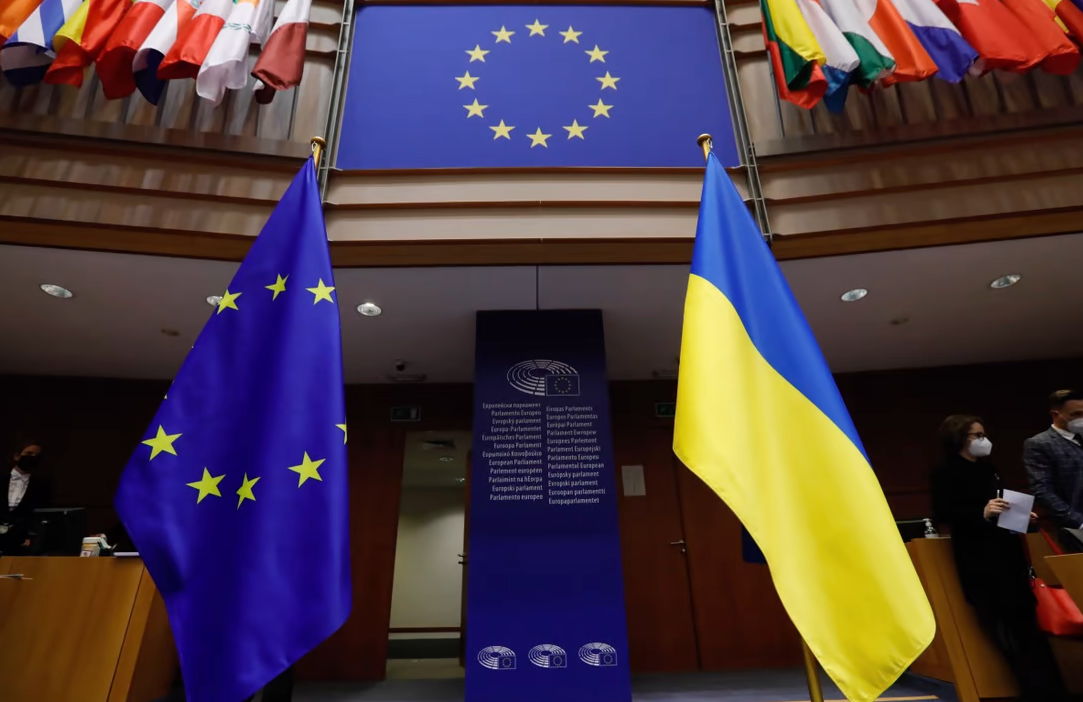Tue May 31, 2022
Tuesday / May 31
EU bans Russian oil - partially
European Union leaders said they had agreed on Monday to cut 90% of oil imports from Russia by the end of this year, resolving an impasse over the bloc's toughest sanction yet on Moscow since the invasion of Ukraine three months ago.
Diplomats said the agreement would clear the way for other elements of a sixth package of EU sanctions on Russia to take effect, including cutting Russia's biggest bank, Sberbank from the SWIFT messaging system.
"Agreement to ban export of Russian oil to the EU," said European Council President Charles Michel in a tweet at the end of the first day of a two-day summit of the bloc's 27 leaders.
"This immediately covers more than 2/3 of oil imports from Russia, cutting a huge source of financing for its war machine. Maximum pressure on Russia to end the war," he said.
The leaders agreed that the oil embargo would include exemptions for Hungary -- a landlocked country that relies heavily on crude piped from Russia and which had been the main holdout for a deal -- and others concerned about the economic impact of the move.
Iran nuclear activities
The UN nuclear watchdog said Monday that it estimated Iran's stockpile of enriched uranium had grown to more than 18 times the limit laid down in Tehran's 2015 deal with world powers.
The International Atomic Energy Agency said in its latest report on Iran's nuclear programme that it "estimated that, as of May 15, 2022, Iran's total enriched stockpile was 3,809.3 kilograms."
The limit in the 2015 deal was set at 300 kg (660 pounds) of a specific compound, the equivalent of 202.8 kg of uranium.
The report also says that Iran is continuing its enrichment of uranium to levels higher than the 3.67 percent limit in the deal.
The stockpile of uranium enriched up to 20 percent is now estimated to be 238.4 kg, up 56.3 kg since the last report in March, while the amount enriched to 60 percent stands at 43.1 kg, an increase of 9.9 kg.
Enrichment levels of around 90 percent are required for use in a nuclear weapon.
Waller on rates
Federal Reserve Governor Christopher Waller said Monday he sees interest rate increases continuing through the rest of the year as part of an effort to bring inflation under control.
Specifically, the central bank official said he would support hikes that exceed the “neutral” level considered neither supportive nor restrictive for growth.
Estimates Fed officials provided in March point to a 2.5% neutral level, so that means Waller sees rates increasing at least another 2 percentage points from here.
“Over a longer period, we will learn more about how monetary policy is affecting demand and how supply constraints are evolving,” Waller said in remarks delivered in Frankfurt, Germany. “If the data suggest that inflation is stubbornly high, I am prepared to do more.”
“In particular, I am not taking 50 basis-point hikes off the table until I see inflation coming down closer to our 2 percent target,” Waller said. “And, by the end of this year, I support having the policy rate at a level above neutral so that it is reducing demand for products and labor, bringing it more in line with supply and thus helping rein in inflation.”
